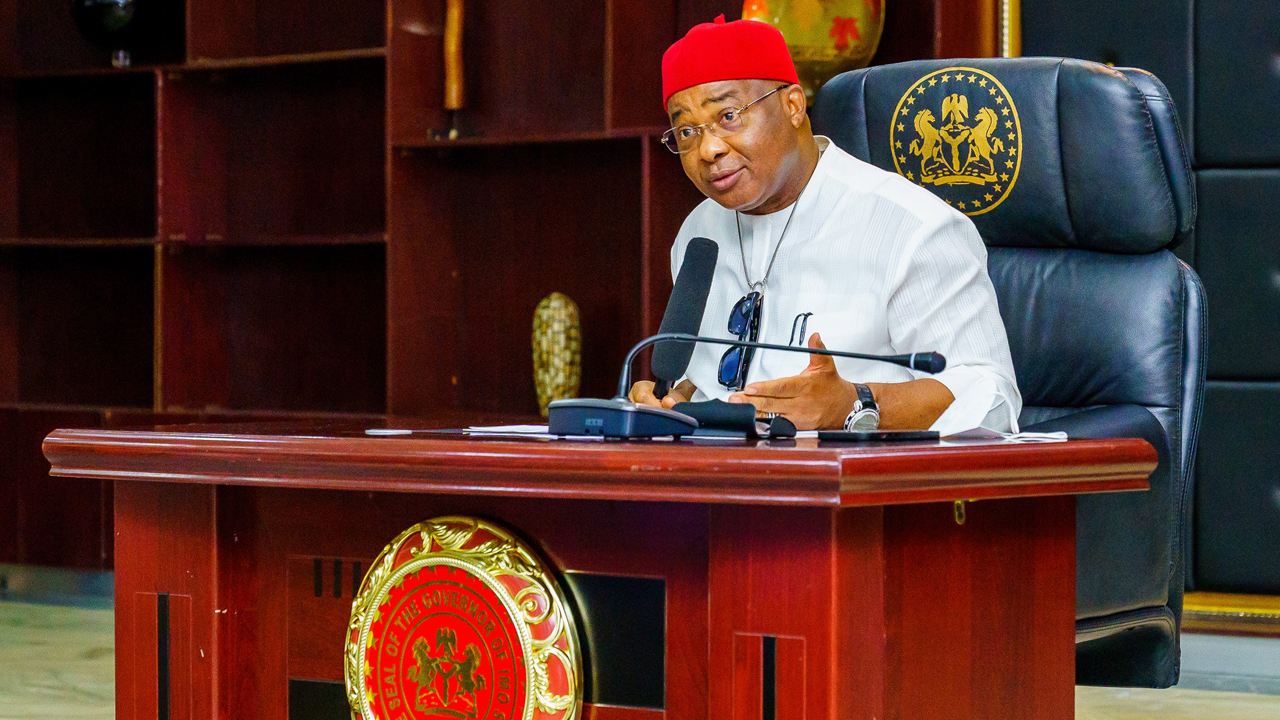
The year 2016 will be remembered for various reasons including the good, the bad and the ugly. For some it was the epic playoff between the US Dollar and Naira at the foreign exchange market, the wake of a brutal recession, the pseudo fuel subsidy removal, among others. On the global stage, it will be remembered for Brexit that shook the world, Trump’s unexpected election victory in the US, Panama papers and some progress in the global effort to curb aggressive tax avoidance championed by the OECD and the G20.
It is difficult to sum up the year in one article but here is my attempt categorised under major headings.
Tax Policy
The 2016 Budget presented by the federal government projected a real Gross Domestic Product (GDP) growth rate of 4.37%, a US$ exchange rate of N197 and inflation adequately managed to prevent double digit rate. Unfortunately these targets were missed by a mile. With high volatility and record low oil prices, Naira depreciated to over N300 officially and almost N500 in the parallel (real) market while inflation rose to over 18%, and GDP at Q4 stood at -2.24%.
On the tax front, the FIRS together with ministry of trade and industry began to enforce compliance with certificate of fixed asset acceptance (CAFA). The Financial Reporting Council of Nigeria also published rules to prohibit the recognition of items in the financial statements for which regulatory approval is required but not obtained.
The minister of finance on the recommendation of the FIRS approved the reversal of the withholding tax rate applicable to construction and related services from 2.5% back to 5%. The rate takes effect when officially gazetted.
A review of the National Tax Policy which was first published in 2012 was commissioned and a final draft submitted to the minister of finance awaiting the approval of the Federal Executive Council and the National Economic Council.
The year ended on a low with the Joint Tax Board seeking to introduce VAT on international passports as part of measures to expand the tax net.
Tax Administration
The new FCT Internal Revenue Service (FCT IRS) which commenced skeletal operations in 2015 following the enactment of the Federal Capital Territory Internal Revenue Service Act, 2015 was charged with the responsibility of assessing and collecting taxes in the FCT, a power previously vested in the FIRS. However the operations were temporarily halted and ceded to the FIRS. This seemed to have changed again towards year-end as the minister of finance issued a directive for all Ministries, Departments and Agencies to remit PAYE taxes to the FCT IRS.
Leveraging on technology, the CBN directed banks to migrate all active certificates of capital importation to an automated electronic platform.
The FIRS introduced a number of initiatives including the launch of three electronic channels for tax remittances; made full compliance with all taxes a precondition for the issuance of tax clearance certificates; revised transfer pricing declaration and disclosure forms to be used effective from January 2017; and attempted to restrict the carry forward of withholding tax credits to the year they relate contrary to the clear provisions of the laws.
Generally, tax authorities across the country became more aggressive with revenue drive including the use of consultants and unconventional methods for tax audits. Business premises of alleged tax defaulters were sealed up with visible non-compliance stickers posted in some cases. Tax prosecution units were set up to prosecute defaulters including holding principal officers personally liable.
In the third quarter of the year, the FIRS granted tax amnesty to taxpayers for outstanding tax liabilities in respect of 2013 to 2015. The amnesty window which opened for 45 days offered waivers of penalties and interests subject to certain conditions. The window was later extended for members of the National Association of Small and Medium Enterprises (NASME) for an additional 37 days till 31st December 2016.
The much awaited public notice to clarify inquiries from taxpayers on the filing of full tax returns by non-resident companies operating in Nigeria was never published.
The Chairman of the FIRS, Mr Babatunde Fowler was elected Chairman of Council of the African Tax Administration Forum (ATAF) for 2016 – 2018 while Chairman of the Lagos State Board on Internal Revenue Service (LIRS), Mr. Folarin Ogunsanwo was relieved of his appointment and replaced by Mr. Hamzat Subair.
Tax Laws and Regulation
There were no new taxes imposed by the federal government and no increase in tax rates although some states introduced a number of tax reforms and proposed some new taxes.
The CBN directed banks to commence the deduction of stamp duty on bank deposits. This was challenged and subsequently upheld by the High Court but later upturned by the Court of Appeal.
A bill to introduce a communication service tax of 9% was introduced by the National Assembly but was vehemently rejected by telecommunication providers, other stakeholders and the public. A related social welfare bill was also introduced to be funded by the 9% tax.
There were proposed amendments by the Nigerian Law Reform Commission to the Foreign Exchange (Monitoring and Miscellaneous Provisions) Act to provide for the use of electronic transfers, impose new restrictions, and require audits among others.
The Companies Income Tax Act was to be amended to provide incentives for companies that invest in public infrastructure. Amendments to the VAT Act containing upward review of penalties were successfully passed into law.
The Nigeria Immigration Service deported some expatriates for abuse of work permits. There was a renewed focus in the compliance review of companies with expatriate quota positions with attendant risk of prosecution and other sanctions for violation.
Tax Justice and Dispute Resolution
The Court of Appeal (CoA) reversed a decision of the Federal High Court on the imposition and collection of stamp duties on bank deposits. According to the CoA, imposition of stamp duties on bank deposit is illegal.
In Star Deep Water Petroleum Ltd v. Lagos State Internal Revenue Service, the Tax Appeal Tribunal (TAT) Lagos division held that an assessment that is not in line with the law cannot become final and conclusive.
PwC secured a landmark TAT decision on the deductibility of expenses incurred outside Nigeria provided such expenses have been wholly, reasonable, exclusively and necessarily incurred.
Two divisions of the TAT issued conflicting judgments on the applicability of VAT on imported services. The Lagos Division ruled that a Nigerian company that receives services performed by a non-resident entity should account for and pay the VAT while the TAT Abuja Division had earlier ruled that a non-resident entity has no obligation to charge or remit VAT unless it is carrying on business in Nigeria.
The Global Stage
The Tax Inspectors Without Borders (TIWB), a joint initiative by the OECD and United Nations Development Programme (UNDP) launched in 2015 gained momentum with many African countries at different stages of implementation. The TIWB is designed to help developing countries build tax audit capacity in order to effectively deal with tax evasion and aggressive tax avoidance.
Nigeria joined other countries to sign the Multilateral Competent Authority Agreement for the automatic exchange of Country-by-Country Reports which is one of the recommendations under the OECD Action Plans against tax avoidance. There was a renewed effort to expand Nigeria’s avoidance of double taxation treaty network as the government signed a few agreements and the legislature commenced the ratification process for three double tax treaties with Spain, South Korea and Sweden.
Britain voted to leave the EU opening the floodgate of issues including cross border taxation especially with and within the EU. The UK introduced a public register of beneficial owners of UK incorporated companies while in an unprecedented move, the EU ordered Ireland to collect a record US$ 14.5 billion in alleged unpaid taxes from Apple.
In another unexpected turn of events, Donald Trump won the presidential election promising to reduce corporate tax rate from 35% to 15%, introduce a one-time 10% repatriation tax on overseas corporate profits, and cut the top individual tax rate from 39.6% to 33%.
A new global standard (Common Reporting Standards) was introduced for the automatic exchange of information for tax purposes with over 100 jurisdictions already signed up.
Like it or hate it, 2016 without a doubt will go down as one of those unforgettable years generally and in the world of taxation in particular.
Visit my blog to read details of past reviews and predictions – www.pwc.com/nigeriataxblog
Taiwo Oyedele is the Head of Tax and Regulatory Services at PwC Nigeria and Tax Leader for PwC West Africa. He is an author and public speaker on tax, business and economic matters.





